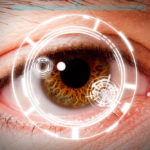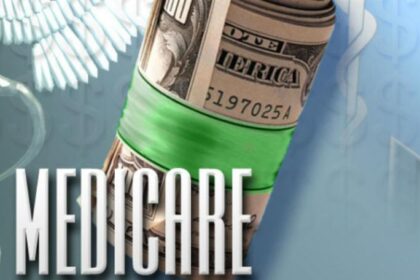A family friend who works at a major retailer reported one night over a drink that he had the strangest of days. He made goal (good for him) selling high-end merchandise to individuals he knew in his heart of hearts were thieves using a stolen credit card. Management was called. Security was called. But in the end the transaction approved because that sale would contribute towards the retirement of that day’s sales goal. After all, the sales clerk, and his manager, and the store would all get paid. And the thieves would look oh so good in their new duds. Only the credit card company would be taken to the cleaners. 4 out of 5 isn’t bad, right? Wrong. And shame on the IT industry for not fixing this.
When we mosey on down to the local mall in search of newer blue jeans, bolder ties and to hasten the onset of the Shoe Event Horizon, we find a curious exchange taking place. People are exchanging the use – just the momentary use – of a small plastic rectangle in exchange for material goods. Yes, credit cards are magical things, enabling us to buy what we want not based on full faith and backing of the US Government (which, these days, may be questionable), but our own good faith and credit. We promise to pay what we owe – sometime later – to get what we want right now. And we agree to pay a rental fee on what we borrowed if we’re not prompt in making good on our loan.
But what if the system is broken? If any one party can be put at a disadvantage as part of such transactions? Well, if it were you or I, we’d simply stop using the card and pay using another, or by check or (gasp! It’s so old fashioned), cash. And if a store found the paperwork and fees offset the value of handling customers quickly, or if they got ripped off and had to eat the cost, they’d refuse that virtual tender. Or raise their prices to cover the costs.
But what if the party put at a disadvantage was a card issuer? Some giant, soulless bank with a heart as cold as its mortar and brick facade. They deserve it, we say. Couldn’t happen to nicer guys. Except that all of us eat that cost each time a fraudulent transaction takes place. We pay with higher interest on our credit accounts and bank fees that nickel and dime us to make up the loss.
So why the interest in this? Because the nature of retail sales hasn’t changed much in since the introduction of the credit card. And that has given thieves the opportunity to find weaknesses they can exploit. And it denied us who sell IT solutions the opportunity to provide new and improved systems to capture, in a secure and trustworthy fashion, all those promises traded in for shoes and purses and bling.
But it’s worse than just a few stolen goodies, because not all the stakeholders are in on protecting the chain of trust involving the consumer, the retailer and the card insurer.
So I have a few predictions on how this will be fixed:
Prediction 1 – Adoption of Pay-By-Phone. 100% chance of widespread within two years.
This is already widespread in Europe, but to support transactions of greater value, something more could be added. Like taking a picture of the person buying the goods (think facial recognition) or their thumb (think optical fingerprint matching).
Prediction 2 – Adoption of RFID down to the item level. 60% widespread within 2 years.
As the cost of RFID tags continues to shrink, it will become possible to add them to every item of value. Sown into each hem, each collar, each bottle of vitamins and each CD case. And not just the one-bit tags used to sense that something is leaving prior to being paid for, but to track if the item was ever paid for. Some thieves “return” merchandise and ask for store credit, effectively laundering their thefts.
And someone will have to sell all those new point-of-sale systems and scanners. Oh, I do so love the smell of a new opportunity.















